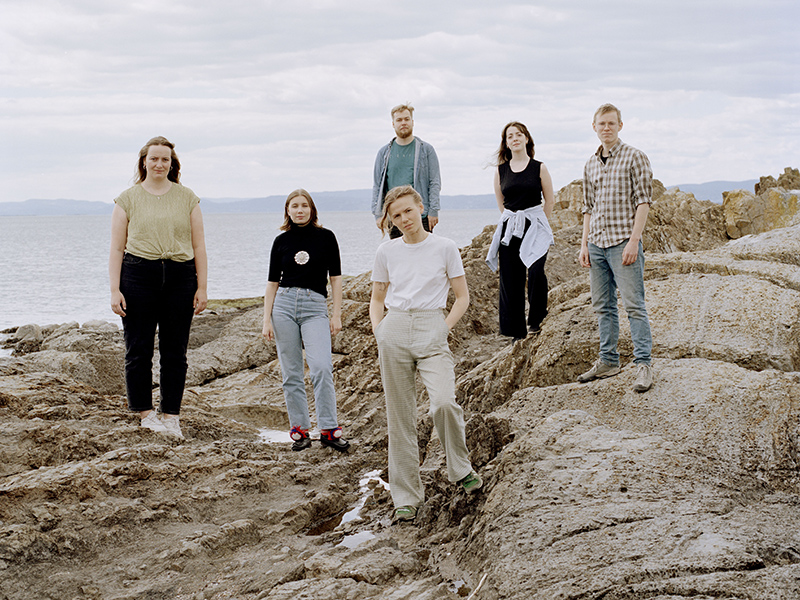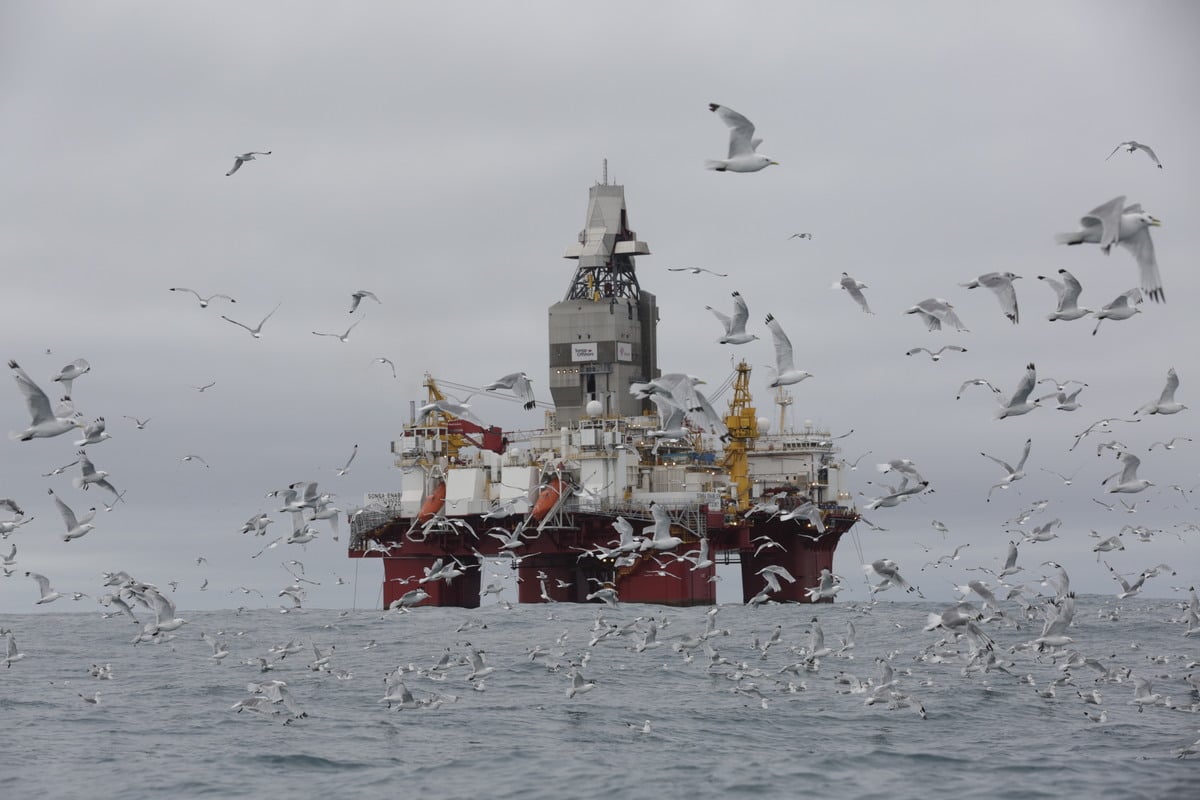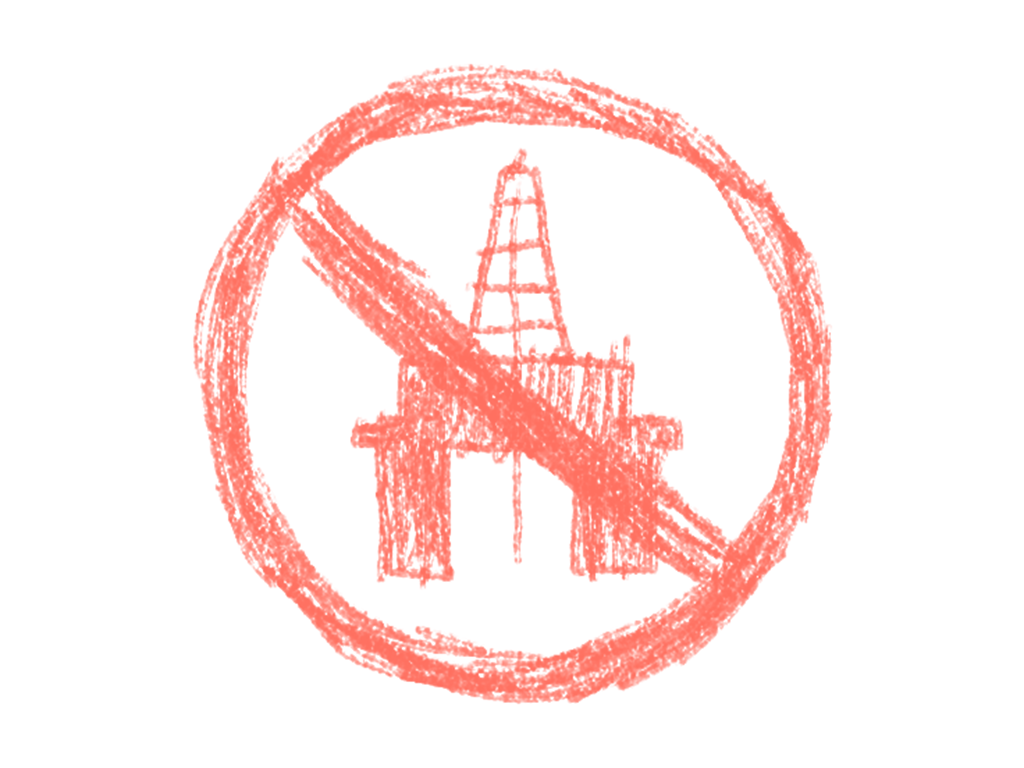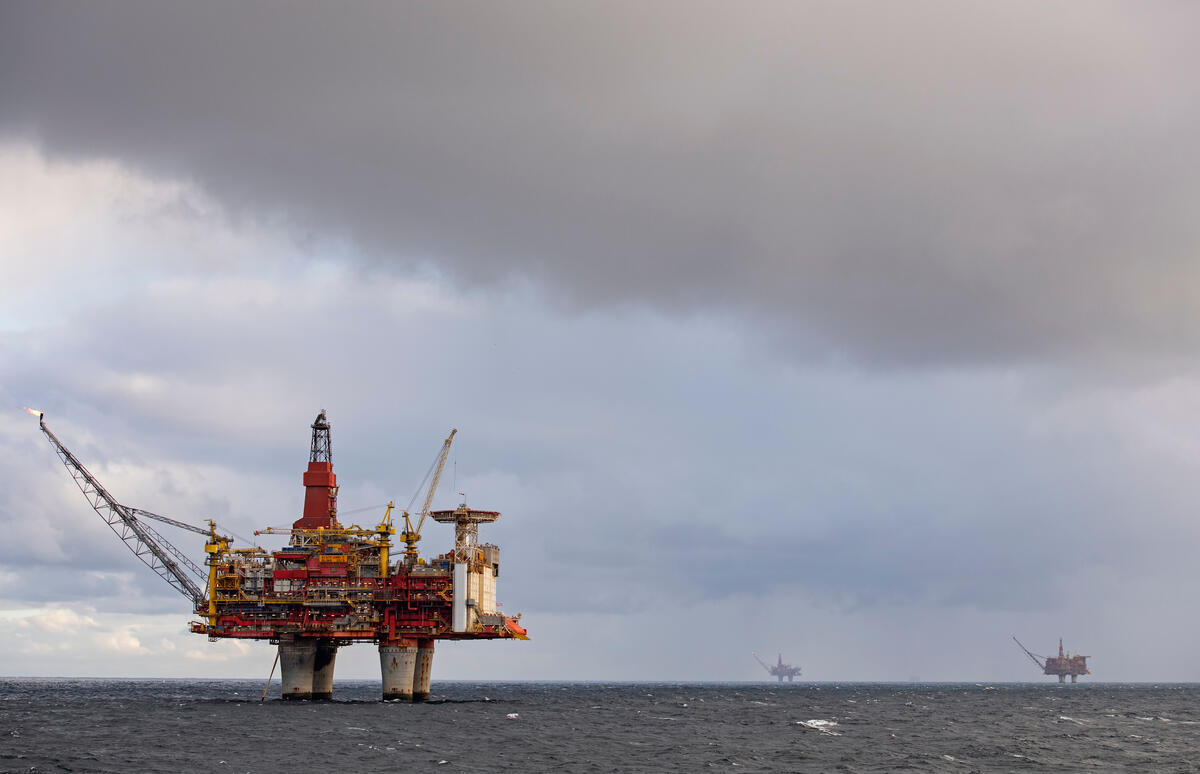
Application to the European Court of Human Rights
On October 28 2025 at 10 a.m. CET, the European Court of Human Rights (ECtHR) will deliver its judgment in the People vs Arctic oil lawsuit filed by Greenpeace, Natur og Ungdom (Young Friends of the Earth Norway), and six individuals in 2021. The complaint concerns the Supreme Court’s ruling in the climate lawsuit from December 2020, in which the majority of the Supreme Court clarified that it is legal to award oil licenses in the Arctic.
On 15 June 2021, Greenpeace Nordic (hereafter Greenpeace) and Young Friends of the Earth Norway, along with six young climate activists, filed an application with the European Court of Human Rights (ECtHR).
In 2016, the Norwegian government opened up new areas for oil drilling, further north in the Barents Sea than ever before, in the fragile and diminishing Arctic.
The applicants argue that the decision to issue licences for oil and gas extraction in the Norwegian Arctic violates their fundamental human rights and increases the risk of harm due to climate change. The applicants argue that the government’s failure to assess the climate impact of the licences should lead the ECtHR to rule the decision in violation of the European Convention of Human rights (ECHR). More than 95% of the emissions from Norwegian oil originate from the combustion of fossil fuels, but these emissions and their effects are wholly excluded from the government’s environmental impact assessments. The applicants argue that this is in clear violation of the common ground established by EU Directives.
On 10 January 2022, the case was communicated by the Court, and the Norwegian state was given a deadline to respond to questions put forward by ECtHR by mid-April 2022. The deadline was later extended to 26 April. The state’s response was published on 26 April, with the state calling for the case to be rejected by the ECtHR. The plaintiffs were then given a deadline to comment on the state’s response. Further, the state was invited to submit additional observations in response to the plaintiffs’ submissions.
Outside parties may also submit interventions, providing further information to the Court on issues in which they are competent. The following have made third party interventions:
- The United Nations Special Rapporteurs on Human Rights and the Environment, and on Toxics and Human Rights
- The European Network of National Human Rights Institutions
- The International Commission of Jurists (ICJ International) and ICJ Norway
- ClientEarth
- The Norwegian Grandparents’ Climate Campaign
In October 2022, the parties were informed that the case was adjourned until the Court is finished processing the first three climate cases ever heard at the ECtHR – Verein KlimaSeniorinnen Schweiz and Others v. Switzerland, Duarte Agostinho and Others v. Portugal and 32 other states and Carême v. France.
In April of 2024, the ECtHR delivered its first three judgments on climate. In Klimaseniorinnen, for the first time ever, the Court confirmed that it is possible for a state to violate on its citizens human rights as a result of climate inaction.
Upon this, in August 2024, the ECtHR asked the parties to submit their updated arguments in light of the Klimaseniorinnen judgement. A year later, in August 2025, the parties made a new round of short submissions after the International Court of Justice (ICJ) delivered its historic advisory opinion on states’ responsibility in light of climate change.
All communications between the Court and parties can be found here.
The plaintiffs
The individual applicants include six young activists: Ingrid Skjoldvær (32), Gaute Eiterjord (30), Ella Marie Hætta Isaksen (28), Mia Cathryn Chamberlain (27), Lasse Eriksen Bjørn (28), and Gina Gylver (25). The applicants are personally impacted by the climate crisis, which is exacerbated by oil extraction, as climate change threatens their health, livelihood and future. The individual applicants are or have recently been members and representatives of Young Friends of the Earth Norway.
Young Friends of the Earth Norway (Natur og Ungdom) is the largest environmental youth organisation in Norway. The organisation represents more than 9,000 individual members and 60 local groups across the country. It is well-respected in Norway, where it is the youth branch of the Norwegian chapter of Friends of the Earth (Naturvernforbundet).
Greenpeace is a global leader in the fight for climate justice with offices in over 50 countries across the world. It is an independent global network that acts to change attitudes and behaviours, protect and conserve the environment and promote peace. Greenpeace does not accept money from governments, political parties or corporations. It is the independent regional office Greenpeace Nordic which is a co-plaintiff in this case.
European Convention on Human Rights
Articles 2 and 8 of the European Convention on Human Rights (ECHR) state that individuals have a right to life and private life. Within these two articles, the Court has previously interpreted a right to protection from environmental harm. Articles 2 and 8 were central in the Urgenda case, where the Dutch Supreme Court found that Dutch climate targets were too low given the scientific consensus about potential harm from climate change.
The six young Norwegian activists also allege a violation of Article 14 of the ECHR about discrimination based on age and birth cohort, the disproportionate burden the climate crisis imposes on youth, and discrimination based on membership of a minority population for three of the applicants who are Sámi or of indigenous Sámi descent.
On April 9 2024, the ECtHR delivered its first three rulings on climate. For the first time, a transnational court specialising in human rights directly upheld a right to climate protection. In its ruling, the ECtHR laid out specific requirements that member states must meet to comply with their human rights obligations.
International relevance and possible outcomes
This ECtHR case could potentially set an international precedent. Because these rights are universal, judges around the world are taking into account the interpretations of other jurisdictions. In addition, if the European Court of Human Rights affirmed that states are responsible for the assessment at the earliest possible stage of the climate impacts of their greenhouse gas emissions even after export, it could have an impact on both courtrooms and boardrooms around the world. As with the Urgenda case in the Netherlands, we can expect courts around the world to look to this case to guide and inspire the interpretation of the rights invoked in their domestic legal systems.
The Applicants are alleging that the Norwegian government has failed to take the necessary and appropriate measures to safeguard their fundamental human rights. As such, the Applicants are asking the Court to declare that the rights of the Applicants have been violated and order the Norwegian State to conduct at the earliest possible stage a full assessment of the cumulative climate impacts of the disputed licences including consumption emissions (i.e. «exported emissions»), applying the precautionary approach and the best available science and evaluate whether they are compatible with the Paris Agreement temperature target.
If the ECtHR issues this order, it could result in the application of a “Paris test” of new Norwegian oil and gas expansion, and vindicate the rights of the Applicants.
The ECtHR is not a supranational body with the power to overrule judgments from national courts of law. However, through a finding of an infringement and subsequent orders to remedy it, the ECtHR may instruct the Norwegian State to take all necessary and appropriate measures to amend the environmental damage that is harming and will continue to harm the Applicants.
Since the initial complaint was first filed in 2021, quantum leaps have been made in the area of climate litigation. This ruling comes in a long line of groundbreaking climate-friendly opinions and judgements from around the world such as that in the International Tribunal for the Law of the Sea (ITLOS), the Inter-American Court of Human Rights (IACtHR), the International Court of Justice (ICJ) and the European Free Trade Association (EFTA) Court.
New legal developments in Norway
This new lawsuit is a continuation of our previous legal action against the Norwegian government – People v Arctic Oil (now pending before the European Court of Human Rights). Although we lost on our main arguments in all three domestic instances, Supreme Court confirmed that export emissions must be assessed when the government considers approving new oil and gas fields, rather than at the exploration stage, as we had argued. This is to be done according to the Norwegian Petroleum Law and the EU Project Directive. Nonetheless, such assessments are either non-existent or performed inadequately, on the basis insufficient data, unreliable reports and a plethora of other uncertainties, for the development applications handed in after the Supreme Court judgment. We are therefore looking to challenge a number of them and seek an invalidation.
In January 2024, the Oslo District Court found the approvals of three oil and gas fields invalid due to the lack of impact assessments of global climate effects. The District Court also issued temporary injunctions forbidding the State from granting any new permits necessary to develop and produce from the fields. The Norwegian State appealed both the judgement and the injunctions. The case was then referred to the EFTA Court where the Court agreed with the organisations’ interpretation of the EU Project Directive that combustion emissions and their effects must be part of the EIA. The Appeals Court’s decision is also pending and expected at the end of October.
The background
On 18 October 2016, with the backing of a wide coalition, Greenpeace and Young Friends of the Earth Norway filed a historic legal case against the Norwegian government, challenging the granting of new oil drilling licenses in a newly opened area for the first time in 20 years.
The environmental organisations argued that this violated the right to a healthy and safe environment, which is protected by the Norwegian Constitution, and, further, that this drilling would make it impossible for Norway to meet its obligations under the Paris Agreement.
The case was heard in the Oslo District Court in November 2017, then in the Court of Appeal in Oslo in November 2019, and finally in the Supreme Court in November 2020. It is the world’s first case to challenge drilling for new oil and gas based on the Paris Agreement, and it is the first time the environmental rights contained in Norwegian Constitutional Article 112 have been invoked in Court.
Read more about the history of the case here.
The Paris Agreement
Norway was among the first countries in the world to sign the Paris climate agreement and the first industrialised nation to ratify it. The Paris Agreement commits its signatories to:
“Holding the increase in the global average temperature to well below 2 °C above pre-industrial levels and pursuing efforts to limit the temperature increase to 1.5 °C above pre-industrial levels, recognizing that this would significantly reduce the risks and impacts of climate change.”
The 1.5 °C goal of the Paris Agreement means that Arctic oil must stay in the ground. In light of climate science and the sheer amount of oil currently discovered or in production, the world will have no chance of staying below a 1.5 °C temperature increase if further Arctic oil is extracted.
Granting new licences in the Arctic cannot be reconciled with Norway’s commitments, expressed in its signing and ratifying the Paris Agreement.
After having broken new ground in the Norwegian courts of law, by bringing to light the constitutional right to a healthy environment, the People vs. Arctic Oil continues to be a groundbreaking and innovative case, taking to court the right to be protected from dangerous climate change for all citizens and youth and future generations in particular. The fight for a liveable future is taking place in the streets, in school strikes and in demonstrations all around the world. As the case proceeds to the European Court of Human Rights, it presents a chance for future generations to have their voices heard. The outcome is up to the Court.
Contacts
Frode Pleym, Head of Greenpeace in Norway: [email protected], +47 973 07 378
Sigrid Hoddevik Losnegård, Head of Natur og Ungdom (Young Friends of the Earth Norway):
[email protected], +47 405 29 471
Greenpeace International Press Desk: [email protected], +31 (0) 20 718 2470 (available 24 hours). Follow @greenpeacepress for our latest international press releases.
Photos and video are available from the Greenpeace Media Library



